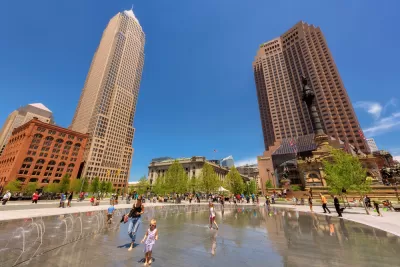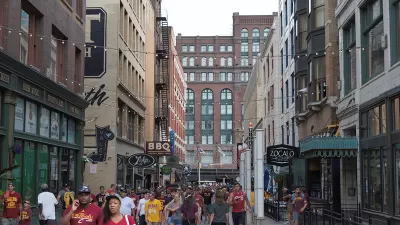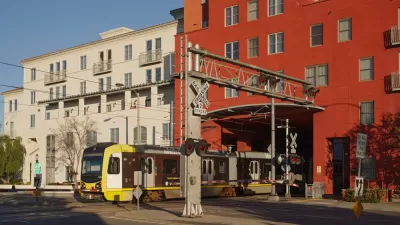The mayor of Cleveland expressed the goal to become the first “15-minute city” in America at his State of the City speech. Experts say it’s possible.

As reported in an article by Sara Shookman, “Mayor Justin Bibb says Cleveland wants to be the first 15-minute city in North America, introducing the concept during his State of the City speech Wednesday.”
Matt Moss, a planner with Cleveland City Planning Commission, said “It's starting out with the city we have now, … and then asking residents how they might want their community to grow or change in ways that, again, make things accessible or provide them with more opportunities to access the things they want to get to in their day to day lives.”
City planners will develop a list of existing amenities and assess what different neighborhoods are lacking in terms of walkability. “In some neighborhoods, they find it's more quality that's lacking due to busted sidewalks or lack of bike lanes or bus stops. In others, when it comes to green space or food justice, neighborhoods are lacking altogether.”
Dr. Darcy Freedman, director of the Mary Ann Swetland Center for Environmental Health, highlighted the importance of access to healthy food and affordable basic staples. “Freedman's team is launching a new study in June called ‘Nourishing Neighborhoods, Empowering Community,’ examining how investing in people rather than just infrastructure can transform the food system.”
The “15-minute city” concept, first introduced in Europe, has become a shorthand for walkable, livable cities that put residents within easy reach of jobs, transit, commerce, and other daily needs. While proponents of the idea argue that it provides a useful vision for improving the day-to-day conditions of urban neighborhoods, the movement has received criticism for not taking into account specific historical conditions in American cities and the ways in which they exacerbate inequality and car-centric development. Economist Edward Glaeser has called it a “dead end.” To Glaeser, the 15-minute city describes a neighborhood, not a city. “All cities should be archipelagos of neighbourhoods, but these neighbourhoods must be connected.” In a recent example illustrating this contradiction, a “15-minute city” being built from scratch in Utah will nevertheless include around 40,000 parking spots.
FULL STORY: Can Cleveland become a '15-minute city'? Experts say it's a real possibility

Alabama: Trump Terminates Settlements for Black Communities Harmed By Raw Sewage
Trump deemed the landmark civil rights agreement “illegal DEI and environmental justice policy.”

Planetizen Federal Action Tracker
A weekly monitor of how Trump’s orders and actions are impacting planners and planning in America.

The 120 Year Old Tiny Home Villages That Sheltered San Francisco’s Earthquake Refugees
More than a century ago, San Francisco mobilized to house thousands of residents displaced by the 1906 earthquake. Could their strategy offer a model for the present?

Housing Vouchers as a Key Piece of Houston’s Housing Strategy
The Houston Housing Authority supports 19,000 households through the housing voucher program.

Rural Population Grew Again in 2024
Americans continued to move to smaller towns and cities, resulting in a fourth straight year of growth in rural areas.

Safe Streets Grants: What to Know
This year’s round of Safe Streets for All grant criteria come with some changes.
Urban Design for Planners 1: Software Tools
This six-course series explores essential urban design concepts using open source software and equips planners with the tools they need to participate fully in the urban design process.
Planning for Universal Design
Learn the tools for implementing Universal Design in planning regulations.
Clanton & Associates, Inc.
Jessamine County Fiscal Court
Institute for Housing and Urban Development Studies (IHS)
City of Grandview
Harvard GSD Executive Education
Toledo-Lucas County Plan Commissions
Salt Lake City
NYU Wagner Graduate School of Public Service





























